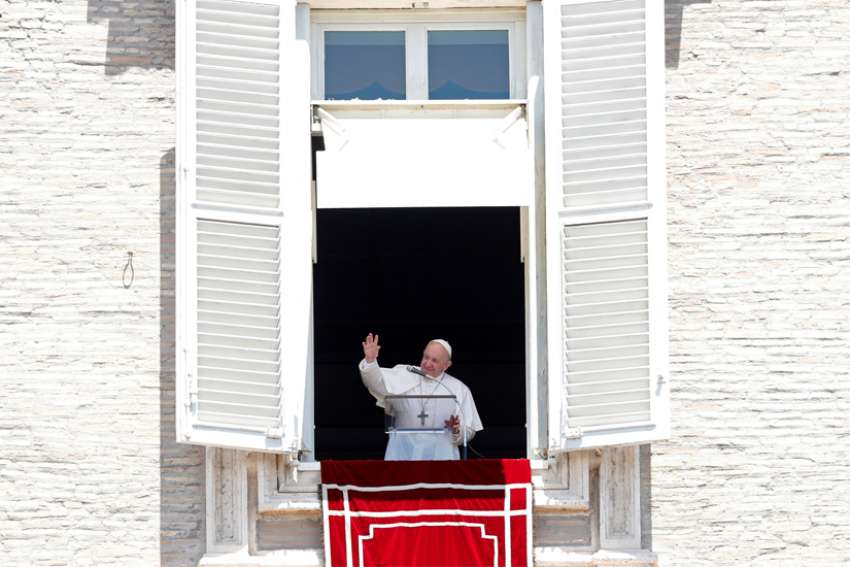In order to follow Christ's call to take up the cross and follow him, Christians must take the same path he did "without looking for shortcuts," the pope said June 28 before praying the Angelus with pilgrims in St. Peter's Square.
"There is no true love without the cross, that is, without a personal price to pay," he said. "And when borne with Jesus, the cross is not scary because he is always at our side to support us in the hour of the most difficult trial, to give us strength and courage. Nor is it necessary to get agitated to preserve one's own life through fearful or egotistical behavior."
In his address, the pope reflected on the Sunday Gospel reading from St. Matthew, in which Jesus tells his disciples that whoever loves father, mother, son or daughter "more than me is not worthy of me."
Whoever "does not take up his cross and follow after me is not worthy of me. Whoever finds his life will lose it, and whoever loses his life for my sake will find it," Jesus said.
The pope said that Christ's words are a call for his disciples "to take the demands of the Gospel seriously, even when that requires sacrifice and effort."
Jesus' words of caution to those who love their families more than him are not meant "to undervalue love for parents and children," but instead serve as a warning that family ties, "if put in first place, can deviate from the true good."
"We see this (when) some forms of corruption in governments come about precisely because love for the family is greater than love for one's country and so they place family members in office," he said.
Instead, when love for parents or children is "inspired and purified" by one's love for Jesus, "it then becomes totally fruitful and produces fruit for the good of the family itself as well as beyond it," the pope said.
The "Gospel paradox" of losing one's life to find it, he added, can be seen today in the many people who sacrificed themselves "to help others who are in need in this pandemic."
Pope Francis recalled the story of a priest who was moved by a child in his parish who gave him the little bit of money he saved up "for the poor, for those who are in need because of the pandemic."
The consequence of generously giving one's life for others, he said, "is a contagious gratitude that helps every one of us to be grateful toward those who take care of our needs."
"Gratitude, appreciation is, first of all, good manners, but it is also characteristic of a Christian," the pope said. "It is a simple but genuine sign of the kingdom of God, which is the kingdom of gratuitous and grateful love."


